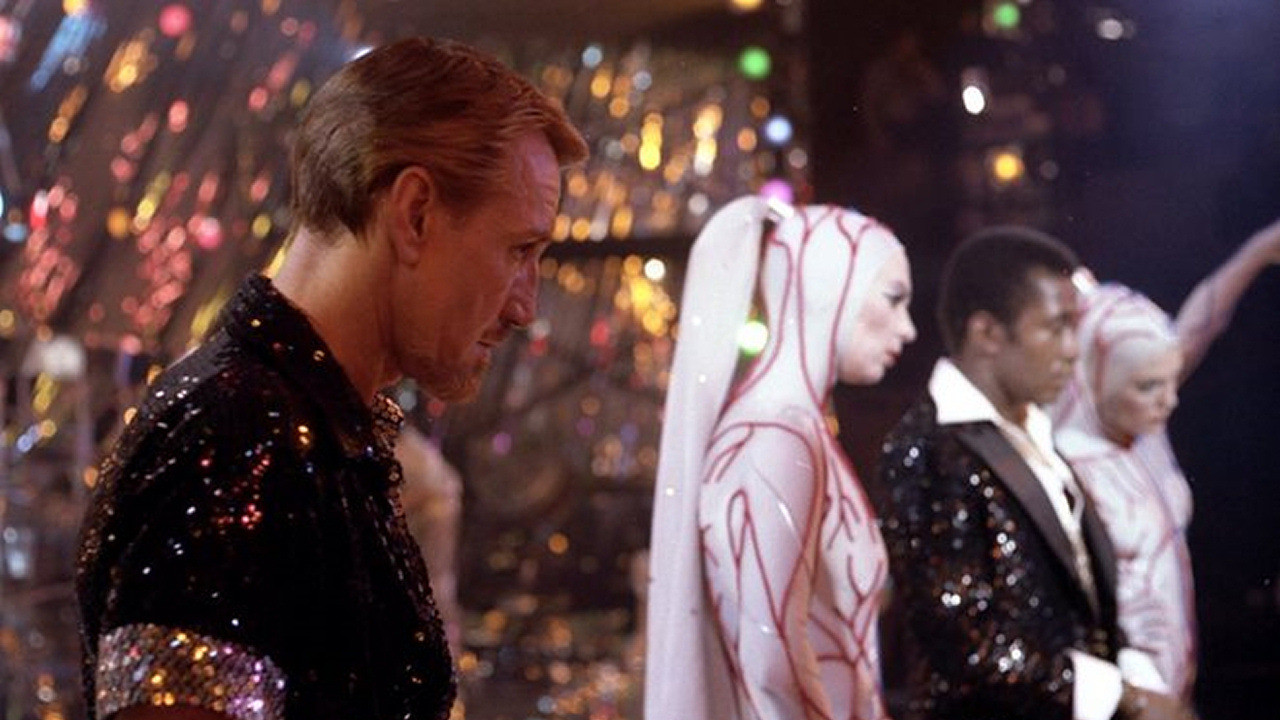Sometimes I wonder if there really is someone out there writing the jokes. In 2003, a guy named Chris Moneymaker made a lot of money from other people at the World Series of Poker. And in 2008, a guy named Bernie Madoff was arrested for having made off with a whole lot of other people’s money, a ten digit figure that will probably never fully be tallied. $50 billion? $60 billion? Eh, it’s just American dollars anyway, not real money.
Now that’s kind of funny, but the funnier part is this: it wasn’t exactly a big secret. If you asked Madoff’s peers in the financial community what they knew about Bernie, they answered evasively or with a knowing wink: Aw, ya know, he’s… Bernie. Vague claims had been made against Madoff in the 1990s, but everybody was making money in the heyday, including Madoff’s clients, and we had things like Long Term Capital Management’s failure of genius and revenue-free companies going public at $30 billion+ valuations to keep us entertained. So what if Mr. Madoff, a former Nasdaq chairman, was fudging some figures here and there? We were all just making up numbers then.
It’s not like Mr. Madoff’s scam was even all that difficult to detect. In 2000, Harry Markopolos, then an officer at Boston-based options trading firm Rampart, took one look at a brochure for a fund managed by Madoff (though he was mysteriously unidentified in the p.r. material) and decided it was obviously a fraud. The prospectus proudly displayed a chart with a neat, perfectly straight line that proved the fund performed exactly the same year-in and year-out even through the extraordinarily volatile trading environment of the late 90s. Many miracles are possible in the world of creative finance: steady-Eddy equity returns in all market conditions are not among them.
Of course people want to believe in such certainties and this is where Madoff’s genius, if he had any to supplement his ravenous sociopathic greed, lied. He didn’t promise outsized results, didn’t claim he could double your money in a month, or get you in on a sweetheart deal that only the super-wealthy have access to. He simply guaranteed a reasonable and consistent rate of return regardless of the market, and who didn’t want that in an era when any dot com could go from $10 to $1000 to $1 in the blink of en eye? Of course he was simply running a straight-up Ponzi scheme, constantly recruiting new money to pay off prior investors while pocketing a few “management fees” along the way.
Markopolos presented his carefully marshaled evidence to the SEC in 2000, finally providing undeniable proof that Bernie could no longer be dismissed with a wink. Case closed? You probably know the answer to that. The SEC thanked Markopolos for his efforts, and quickly leaped into inaction, and Madoff continued to run his shockingly simple but also shockingly vast Ponzi scheme for the better part of a very bad decade.
Markopolos was not the sort of fellow to be put off so easily, and here’s where things get funnier. Mr. Markopolos is, shall we say, an insistent sort of fellow, the kind of person who is absolutely certain he knows the truth, especially the kinds of truths nobody else knows about, and he intends to tell you about it in very florid terms, something that makes it a little difficult to take him seriously at times. Let’s not mince words. Mr. Markopolos, at least as portrayed by director Jeff Prosserman in this documentary, is a little paranoid, and by a little I mean a lot.
While “chasing” Madoff, Markopolos became convinced that he was about to be killed by one of the big man’s conspirators, and he thought about it at great length and in great detail. As he says in the movie, he was expecting a “double tap” at any moment, two bullets to the forehead from a professional that would drop him before he even knew he’d been hit. He checked for bombs under the car every day and instructed his wife to stand at the top of the stairs and empty the clip if and when their house was invaded. Imminent death only steeled Markopolos’ resolve, and he vowed that if it ever got to the point where he felt there was no hope left for him and his family, he had every intention of killing Madoff.
Fortunately it didn’t come to that, and he continued his dogged investigation. The chase took Markopolos and his support team from Rampart to multiple nations where he gradually realized that this Ponzi scheme, supported by dozens of feeder funds that seldom had Madoff’s name attached to them, was so huge it encompassed most of the world; heck, it even threatened to rope in Prince Charles. If we still want to attribute genius to Madoff, let it be noted that he only kept a small percentage of the funds he siphoned away; by making sure that many other people also profited from his grift, he continually strengthened his ever-growing network. A whole lot of people had a whole of incentive to cover up for good old Bernie. This had to be stopped, and Harry Markopolos was the only man to do it.
And then a really funny thing happened in 2008. The financial world imploded after the deflation of the housing bubble and the fish-gutting of Lehman Brothers and Bear Stearns (c’mon, that was hilarious), and after all these years Bernie Madoff was finally caught! This was one of those sad-funny things, though, because Markopolos’ considerable decade-long effort wasn’t the deciding factor at all. The problem was that the new money Madoff was always using to pay off old investors simply dried up (a lot of it had disappeared forever, after all) and he could no longer maintain the cash flow to his formerly happy clientele. Bernie Madoff was no longer a money maker, and that meant he was vulnerable, and that meant the SEC was finally ready to pounce just past the nick of time.
Still there’s a happy ending here. After years of being ignored by the SEC and brushed off by many major media outlets, Harry Markopolos testified in front of a Congressional hearing investigating the SEC’s failures in the Madoff case. After years of being pushed to the side, years of bomb-checking, Harry Markopolos was finally heard on a national stage, and was hailed as a hero.
And Harry Markopolos is a hero. And here’s the funniest part. This raging paranoid who saw death around every corner was right all along. Maybe not about the death around every corner thing, but he was right about Madoff from the very start, and he was righteous in his crusade. When the officials getting paid to do the job failed miserably in their duties, it was the crazy guy who stood as the public’s last and only line of defense against cretins like Madoff. Not in a cornball movie, but in real life. And if you don’t see the humor in that, you must not realize that the cosmic joke is, as ever, on us.
Video:
The film is presented in a 1.78:1 anamorphic transfer. There is absolutely no reason in the world to pay any extra money to see this in Blu-ray unless you really need to see talking heads in high-def. However, the HD transfer here is quite good.
Audio:
The DTS-HD Master Audio 5.1 soundtrack doesn’t require much heavy lifting – the dialogue is all clearly mixed and that’s all that really matters. English and Spanish subtitles are offered to support the English audio.
Extras:
The BD includes a Director’s Commentary, a Trailer, a selection of Deleted Scenes and a 10-minute Alternate Ending.
Film Value:
Director Jeff Prosserman tries to gin up the documentary with a few nods to its “stranger than fiction” storyline, introducing the characters as actors in a movie and with the Fargo-esque line “Unfortunately, a true story.” Prosserman’s technique can only be described as the “poor man’s Errol Morris” approach that has become far too familiar. The documentary is sloppy at times and doesn’t do much to explore Madoff’s scheme in detail. It’s also fair to question whether Prosserman’s focus on Markopolos’ paranoia is a fair representation of the man. But I’m a sucker for stories about financial fraud, especially such blatant and brassy ones as Madoff’s.
We need a meticulous and sober film that sheds more light on the institutional context that allowed Bernie Madoff to flourish with such a patently implausible scheme for so long. “Chasing Madoff” is certainly not that film, but when it cedes center stage to Harry Markopolos in all his religious fervor, it’s a riveting portrait. I find Mr. Markopolos’ dedication to his lengthy battle rather inspiring, even if it didn’t lead directly to the bad guy’s downfall. Give ’em hell, Harry.


